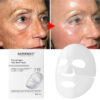Have you ever wondered why so many people use herbal supplements for weight loss? Despite little evidence, they hope for quick results. The U.S. spends about $13 billion on these supplements each year. It’s important to know which ones really help with weight loss and which are just hype1.
Many supplements claim to help you lose weight fast. But do they really work? A study with 70 adults showed some weight loss with a special supplement. But, this study was small and short, raising questions about safety and long-term results2.
When choosing weight loss supplements, we face a big challenge. These products don’t have to prove they’re safe or work before they’re sold. This can lead to serious side effects, like liver damage. So, we need to be careful when picking herbal supplements for weight loss.
Key Takeaways
- People spend about $13 billion annually on herbal supplements in the U.S.
- Many herbal supplements lack scientific backing for their weight loss claims.
- A clinical trial indicated a modest weight loss with certain herbal supplements, but results may not reflect long-term effectiveness.
- Herbal supplements are not subjected to strict safety testing before market availability, raising safety concerns.
- Potential risks associated with these supplements include serious side effects like liver damage.
Introduction to Herbal Supplements for Weight Loss
In America, herbal weight loss supplements are getting more popular. People start their weight loss journey hoping for quick results. They believe natural ingredients are safer and more holistic than drugs.
But, it’s important to watch out for false promises. The FDA doesn’t check these supplements as closely as it does food and drugs. This can be risky for those who use them3.
With over two-thirds of adults in the U.S. overweight or obese, the demand for these supplements is high4.
Even though they sound promising, the science behind them is often weak. Studies show that some popular ingredients, like chromatic and glucomannan, might not help much with weight loss35. This shows a big difference between what people hope for and what science says. It’s key to understand this for effective weight management.
Understanding Weight Loss Supplements
Weight loss supplements are popular for helping us lose weight. The market offers many types, from herbal diet pills to synthetic ones. It’s key to know these products are weight loss aids, not treatments for medical conditions. Their success can vary a lot.
When looking at these supplements, we see many ingredients. Garcinia cambogia and Chitosan are often touted as powerful, but science supports them less. For example, Chitosan might block fat absorption, but it’s not clear if it leads to big weight loss6.
Ingredients like caffeine and Bitter orange might slightly boost calorie burning and reduce hunger. But, their effects are usually too small for significant weight loss. Caffeine, for instance, might help with a bit of weight loss, but people get used to it7. Prices also vary, with some products like alli costing $66.50 for 120 capsules8.
In the end, we should be cautious about weight loss supplements. A healthy diet and regular exercise are key for managing weight. Remember, while types of weight loss supplements are everywhere, their real benefits are often less than what’s promised.
How Do Herbal Supplements Work?
Herbal supplements are popular for weight loss. It’s important to know how they work and their role in managing weight.
Nutrient Absorption
Herbal supplements can improve how our body absorbs nutrients. Ingredients like ginger and dandelion help with digestion. They support a healthy gut.
Appetite Regulation
Herbal supplements also help control hunger. Green tea extract and Garcinia Cambogia are known for this. A 2019 study showed cinnamon can help with weight loss9.
But, it’s key to understand the limits of these claims. Sometimes, the science isn’t clear or strong enough.
Energy Expenditure Stimulation
Many supplements aim to boost energy use for weight loss. Capsaicin in cayenne pepper is known to help with this9. Yet, it’s hard to separate real benefits from overhyped claims.
Regulation of Dietary Supplements
The U.S. dietary supplements market has its own rules, mainly because of FDA oversight. Unlike drugs, which get a lot of testing, supplements often don’t get checked as much. This raises worries about their safety and how well they work.
The dietary supplements industry made almost $39 billion in 2022. This shows how much people want products that help their health and wellness10. But, not having strict rules can mean some products might not be safe or work as promised.
The FDA keeps an eye on supplements but doesn’t check them before they hit the shelves. So, while the FDA can pull dangerous products later, it’s up to makers to make sure they’re safe and honest. They must make sure their products are safe, correctly labeled, and don’t trick people.
When recalls happen, it makes people question the safety of supplements. For example, in August 2021, 72 weight loss products were pulled off the market because they had hidden drugs. This shows how bad rules can let risky products get sold without warning people.
As consumers, knowing what we take is key. Most Americans trust the supplement industry, with about 77% finding it trustworthy10. Still, we should be careful with supplements. More checks and better rules could make them safer and more effective.
Common Herbal Supplements for Weight Loss
Many people are trying popular herbal weight loss supplements to lose weight. These supplements often have common ingredients for weight loss that help with fat loss and appetite control. Some well-known ingredients include:
- Garcinia Cambogia – This tropical fruit extract is known for blocking fat production and reducing hunger.
- Green Tea Extract – It’s full of antioxidants and believed to boost metabolism and burn fat.
- Ginger – Studies show ginger can help with weight loss by reducing body weight and belly fat11.
- Fenugreek – Taking 8 grams of fenugreek fiber daily can make you feel fuller and eat less11.
- Turmeric – Curcumin in turmeric is linked to better fat loss, especially in belly fat in overweight people11.
Even though they’re popular, experts say most weight-loss supplements don’t work. They often contain ingredients with little scientific backing12. Some products have stimulants like BMPEA and DMBA, which can raise blood pressure and affect mood12. The FDA also warns about ephedrine and ephedra due to serious side effects like strokes and heart attacks12.
Interestingly, over 15% of American adults use dietary and herbal supplements for weight loss, spending over $2 billion in 201513. The promise of quick weight loss is tempting, but it’s crucial to check the ingredients and claims carefully.
| Herbal Supplement | Claimed Benefits | Scientific Support |
|---|---|---|
| Garcinia Cambogia | Blocks fat production, appetite suppressant | Limited evidence |
| Green Tea Extract | Boosts metabolism, fat oxidation | Moderate evidence |
| Ginger | Weight loss assistance, decreases belly fat | Strong evidence11 |
| Fenugreek | Increases fullness, reduces food intake | Strong evidence11 |
| Turmeric | Enhances fat loss, decreases belly fat | Strong evidence11 |
Exploring the Efficacy of Individual Supplements
In this section, I will explore the benefits of various herbal supplements for weight loss. Obesity is a big health issue. So, it’s important to know about Garcinia Cambogia, green tea, and 5-HTP supplements.
Garcinia Cambogia
Garcinia Cambogia is known for its weight loss benefits. It has a key ingredient called hydroxycitric acid (HCA). HCA might help block fat production and reduce hunger, aiding in weight loss.
But, the real effectiveness of Garcinia Cambogia is still debated. Some studies show it doesn’t help much compared to a placebo. This makes its role in serious weight loss uncertain14.
Green Tea Extract
Green tea is popular for weight loss due to its antioxidants and fat-burning properties. It contains catechins, especially epigallocatechin gallate (EGCG), which can boost metabolism and fat burning during exercise. Some people see small weight loss with green tea, diet, and exercise15.
Green tea is also safe, making it a favorite for natural supplements.
5-Hydroxytryptophan (5-HTP)
5-HTP supplements aim to increase serotonin, which can help with mood and appetite. Studies suggest that 5-HTP with diet changes might lead to weight loss by reducing hunger16. Some users feel fuller and eat less with 5-HTP. But, others worry about side effects like stomach problems or drug interactions.
Herbal Supplements for Weight Loss: What Works and What Doesn’t
In my search for herbal supplements for weight loss, I found both good and bad. The global market for these products grew to $254.9 billion in 2021 and is expected to reach $377.3 billion by 202617. Some studies show benefits, but a 2021 review found only 16 out of over 300 studies with solid evidence for weight loss17.
Many supplements promise quick weight loss. For example, garcinia cambogia was heavily marketed but a 2013 review found little to no effect on weight loss17. However, green coffee extract led to an average weight loss of 5.4 pounds in overweight or obese adults compared to a placebo17.
It’s important to have realistic expectations. People using prescription weight-loss drugs may lose 3% to 12% more weight than those changing their lifestyle alone18. But, these drugs can cause side effects like nausea or constipation, which might stop some from using them18.
I urge readers to carefully check the claims of herbal supplements. Knowing the difference between marketing and real research can help in your weight loss journey. It also helps avoid falling for false promises in supplements.
Metabolism Boosters: Are They Effective?
Metabolism boosting supplements are often seen as quick fixes for weight loss. It’s important to look into how these herbal aids affect our metabolism. The Mayo Clinic says our basal metabolic rate (BMR) uses about 70 percent of our daily energy19. Knowing about BMR helps us see if these boosters really work.
Many believe these supplements can greatly change BMR. Caffeine, for example, can boost thermogenesis, especially with a dose of 270 mg19. Capsaicin in chili peppers can also help burn more calories, about 50 a day19. But, not all herbal aids have solid evidence of their benefits.
Research on some supplements is interesting. Korean scientists looked into metabolism boosters and found ephedrine, a common ingredient, doesn’t really help with weight loss20. Also, 5-HTP in herbal supplements might be safe but could cause a rare blood disorder20. Caffeine is okay, but too much can be bad for your blood pressure21.
Natural diuretics like dandelion might help lose water weight but don’t last long20. Oral aloe in weight-loss products can make you go to the bathroom but doesn’t lead to lasting weight loss20. It might even cause stomach cramps.
In summary, how well metabolism boosters work varies a lot. Some, like caffeine, might help, but others don’t. It’s best to choose options backed by science and talk to a doctor for advice.
Fat Burners: What You Need to Know
I find the world of fat-burning herbs fascinating. Ingredients like ephedra and bitter orange are popular for weight loss. But, it’s important to consider the risks.
Ephedra and Its Risks
Ephedra was once popular in fat burners for boosting metabolism and energy. But, safety concerns have raised big questions. The FDA banned ephedra due to health risks like high blood pressure and heart issues22.
Studies show ephedra can lead to heart problems and strokes. This makes it a risky choice for losing weight22. Also, many fat burners aren’t FDA regulated. This means unknown risks and hidden harmful ingredients22.
Bitter Orange
Bitter orange is also talked about for fat burning. It has compounds like synephrine, similar to ephedra. But, its safety is a concern.
It may cause high blood pressure and heart rate issues, like ephedra22. Always talk to a doctor before using bitter orange.
Appetite Suppressants: Do They Really Help?
Exploring appetite suppressants, I often wonder if they really help manage hunger. These products vary in effectiveness and safety. Hoodia, a popular ingredient, is known for its appetite-reducing claims, but the evidence is mixed.
Hoodia
Hoodia Gordonii, a cactus-like plant, is marketed as an effective appetite suppressant. Some users say it reduces hunger, but scientific studies are not clear. The effectiveness of Hoodia is still debated among appetite suppressants.
Prescription appetite suppressants like Liraglutide (Saxenda®) and Semaglutide (Wegovy®) are approved by the FDA for long-term use23. For short-term weight loss, options like Benzphetamine and Phentermine are available, but they have addiction risks23. These FDA-approved suppressants help regulate hunger hormones, making them effective for many23.
A study with nine Korean women found that fenugreek tea reduced hunger and increased fullness24. However, their food intake didn’t change much. This shows that appetite suppressants can change how we feel hunger, not always how much we eat. Natural options like glucomannan, a water-soluble fiber, have also been shown to help with weight loss25.
While Hoodia is part of the appetite suppressant market, looking into other options like herbal teas and fibers might be more effective for managing hunger.
Potential Risks and Side Effects of Herbal Supplements
Herbal supplements might seem like a natural way to lose weight. But, it’s important to know the risks and side effects. Many herbal products aren’t checked by the FDA like other drugs. This can be dangerous for people using them26.
Liver Damage Concerns
Some herbal supplements can harm the liver. For example, kava can cause liver damage and even death, especially for those with liver problems or who drink alcohol26. Comfrey can also damage the liver and lungs if taken by mouth26. Chaparral, used for pain, can cause liver damage and interact with other drugs26.
Interactions with Medications
Herbal supplements can also affect how well other drugs work. St. John’s Wort, for instance, can make other drugs less effective. This can lead to problems like unintended pregnancies and issues with organ transplants26. It’s key to talk to a doctor before taking any supplements.
| Herbal Supplement | Potential Risk | Comments |
|---|---|---|
| Kava | Liver Damage | High risk in people with liver issues or alcohol users. |
| Comfrey | Severe Liver Damage | Should not be ingested orally. |
| Chaparral | Liver Damage & Drug Interactions | Can cause severe health risks when combined with medications. |
| St. John’s Wort | Drug Interaction | May reduce the effectiveness of other drugs, leading to complications. |
It’s crucial to know the side effects of herbal supplements and the risks of weight loss aids. Always research both the benefits and risks before adding them to your routine26.
Detox Supplements and Their Impact on Weight Loss
Detox supplements are popular for quick weight loss. They promise to clean your body and boost energy. But, a healthy body can detox on its own without these products27. It doesn’t need external help to get rid of toxins27.
Many detox supplements don’t have solid science backing their claims. There’s no proof they work for weight loss28. Very-low-calorie diets might help lose weight fast but can be harmful28. They can lead to nutritional problems and dehydration28.
Detox products can be risky because they’re not well-regulated. They might have unknown ingredients that can harm you27. Since they’re not FDA-approved, you can’t rely on them as much as you would on medicine27. The best way to lose weight is through healthy habits like eating right and exercising27.
It’s important to talk to a doctor before starting any detox or diet plan, especially if you’re at risk29. Getting advice tailored to you is key to staying healthy27
Promises vs. Reality: The Myths Surrounding Herbal Supplements
Exploring herbal supplements for weight loss, I find many myths. These myths can confuse those trying to lose weight. They promise easy weight loss without changing your lifestyle. But, the best way to manage weight is through healthy eating and exercise30.
Some believe in spot reduction, thinking certain exercises can target fat areas. A 2022 review proved this wrong, showing no fat loss in specific areas from exercise alone31. Also, supplements’ effectiveness varies because of lack of strict rules. This means some products don’t live up to their claims30.
It’s key to know the truth about supplements to make smart choices. A balanced lifestyle with exercise and healthy food works best for weight control. Losing weight is about lasting efforts and good habits, not quick fixes3031.









